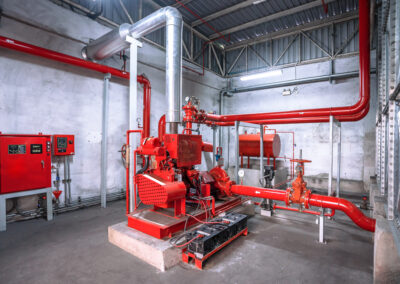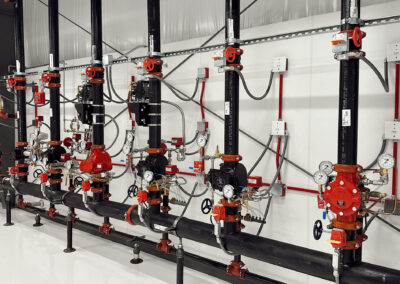When protecting sensitive equipment or mission-critical spaces, some facilities choose a clean agent fire protection system instead of traditional water-based protection. Clean agent systems use gas instead of water, which means they can put out a fire quickly without leaving residue behind.
Here’s a straightforward look at what they are and when you might need one.
What is a Clean Agent Fire Suppression System?
A clean agent system uses gas, stored as liquid and released as vapor, to suppress a fire. These systems extinguish a fire by interrupting the chemical reaction, reducing heat, or lowering oxygen levels in the protected space.
At their core, clean agent systems are:
- Fast acting
- Safe for electronics
- Residue-free
- Commonly used in areas where water could cause damage
Where Are Clean Agent Systems Used?
You may benefit from a clean agent system if:
- Server rooms and IT closets
- Control rooms and communication spaces
- Archives, media storage, and collections
- Certain healthcare or laboratory environments
- Rooms with critical electrical equipment
Do You Need One?
You’ll typically find clean agent systems in areas that house important equipment or itens that could be ruined by water, such as:
- You have equipment that can’t get wet (electrical panels, servers, hardware)
- Downtime is costly and you need a fast, clean fire response
- You store sensitive materials that woul dbe damaged by water or residue
- Your insurance or local codes recommend or require specialized protection
Clean agent fire suppression systems provide quick, effective protection without damaging what you’re trying to save. If you business relies on electronics, data, or mission-critical operations, it may be worth evaluating whether a clean agent system is right for your space.
Ryan Fireprotection can walk you through the basics, review your facility, and help you determine the type of fire protection that fits your needs. Contact us today to connect with one of our fire protection experts.


